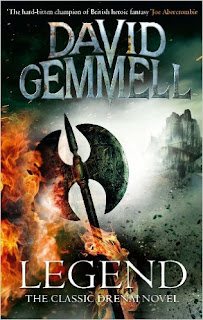Banda sonora de la reseña: Sugiero leer esta reseña escuchando el primer movimiento del concierto para violín en do menor Il Sospetto, de Antonio Vivaldi (Spotify, YouTube).
No hay duda de que Ken Liu es uno de los escritores de relatos más importantes del siglo XXI. Ha publicado alrededor de cien historias y ha ganado prácticamente todos los premios existentes en el género. Pero, curiosamente, sus cuentos no habían sido recopilados en un libro hasta ahora. Incluso su (maravillosa) primera novela, The Grace of Kings, se publicó antes que The Paper Menagerie and Other Stories, un volumen que por fin hará justicia al impresionante talento de este autor para el relato.
The Paper Menagerie and Other Stories es una perfecta muestra de la amplia variedad de temas y estilos en la obra de Liu. De la ciencia ficción pura de "The Perfect Match" a la fantasía histórica de "All the Flavors"; del realismo mágico ("The Paper Menagerie") a la ucronía ("A Brief History of the Trans-Pacific Tunnel"); del new weird ("State Change") al cyberpunk ("The Regular"); de las naves generacionales ("The Waves") a la mitología ("Good Hunting"). Además, junto con una narrativa más tradicional, también hay lugar para historias con una forma más experimental, como "The Bookmaking Habits of Select Species" o "The Man Who Ended History: A Documentary".
A través de todos estos cuentos, Liu utiliza los tropos de la fantasía y la ciencia ficción para explorar de forma profunda, inteligente y, en muchas ocasiones, tremendamente emotiva una gran diversidad de temas con la intención final de arrojar un poco de luz sobre la gran pregunta de qué significa ser humano. Así, por ejemplo, Liu interroga nuestra relación con la tecnología y cómo afecta a nuestra identidad ("The Waves", "Good Hunting") y a nuestro derecho a la privacidad ("The Regular", "The Perfect Match"), el papel de la familia en un mundo continuamente en cambio ("The Paper Menagerie", "Simulacrum"), la magia del lenguaje ("The Literomancer", "The Litigation Master and the Monkey King", "The Bookmaking Habits of Select Species") y las muchas formas en que la Historia puede ser escrita e interpretada ("A Brief History of the Trans-Pacific Tunnel", "The Man Who Ended History: A Documentary"), por nombrar sólo unos pocos.
A través de todos estos cuentos, Liu utiliza los tropos de la fantasía y la ciencia ficción para explorar de forma profunda, inteligente y, en muchas ocasiones, tremendamente emotiva una gran diversidad de temas con la intención final de arrojar un poco de luz sobre la gran pregunta de qué significa ser humano. Así, por ejemplo, Liu interroga nuestra relación con la tecnología y cómo afecta a nuestra identidad ("The Waves", "Good Hunting") y a nuestro derecho a la privacidad ("The Regular", "The Perfect Match"), el papel de la familia en un mundo continuamente en cambio ("The Paper Menagerie", "Simulacrum"), la magia del lenguaje ("The Literomancer", "The Litigation Master and the Monkey King", "The Bookmaking Habits of Select Species") y las muchas formas en que la Historia puede ser escrita e interpretada ("A Brief History of the Trans-Pacific Tunnel", "The Man Who Ended History: A Documentary"), por nombrar sólo unos pocos.
Pero incluso más importante que esta increíble variedad es la calidad media de las historias. En esta colección se encuentran las historias más famosas de Liu ("The Paper Menagerie", "Mono no aware", "The Man Who Ended History: A Documentary", "The Regular"...) pero también otras que, sin ser tan conocidas, son igualmente excelentes como, por ejemplo, "State Change" o "Good Hunting". Hay incluso una gratísima sorpresa para aquellos que ya somos grandes fans de la obra de Liu: "An Advanced Reader's Picture Book of Comparative Cognition" es un relato inédito y una fantástica historia, con una asombrosa exploración de la memoria y ecos de autores como Ted Chiang y Liu Cixin.
La única pega que le puedo poner a esta colección es que, dada la vasta producción de Ken Liu, la mayor parte de sus relatos han tenido que quedarse fuera del libro. Algunos de mis favoritos sí que han sido incluidos ("The Waves", "Good Hunting", "The Man Who Ended History: A Documentary", "The Bookmaking Habits of Select Species"...) pero echo en falta muchos otros: "The Algorithms for Love", "Staying Behind", "Tying Knots", "None Owns the Air", "The Plantimal" (escrito en colaboración con Mike Resnick), "The Call of the Pancake Factory", "Cuttin'", "Maxwell's Demon", "Single-Bit Error"... Con ellos se podría hacer otro volumen tan bueno como éste. Y, ahora que lo pienso, eso sería una idea magnífica, ¿verdad? Así que a ver si los editores de Saga Press me escuchan y lo hacen realidad.
Ha sido muy fácil escribir esta reseña porque con este estupendo libro es imposible equivocarse. Tanto si ya estáis familiarizados con los cuentos de Ken Liu como si aún no los habéis probado, sabéis que necesitáis esta recopilación. Es una colección de relatos impresionante y no podéis perdérosla.
(You can also read this review in English/También puedes leer esta reseña en inglés)
























